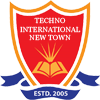At TINT, our commitment to fostering holistic development is demonstrated through the vibrant ecosystem that promotes research as well as encourages cultural activities. Our Research and Development Cell, in collaboration with the Institute’s Innovation Council, guides academic projects, encourages interdisciplinary research, and enhances technical skills through training and competitions.

By nurturing cognitive, physical, social, and emotional well-being, we shape responsible citizens with strong moral values. Our initiatives, from participative learning and technical clubs to cultural events and social outreach, bridge the gap between curriculum, industry, and societal needs. Despite challenges, our proactive management supports infrastructure improvements and collaborations, driving academic and social impact. Successes in publications, national competitions, and community programs highlight the effectiveness of our approach, making TINT a hub of academic excellence and social responsibility.
- Substantial Participation in Technical Project Competitions
- Technical Clubs and Professional Body Student Chapters fostering Research Culture
- Collaborative Research and Publications
- Comprehensive Learning Integrated through Extra-Curricular Activities
- Music, Art, Photography, Film Clubs promoting Liberal Arts
- Instilling Human Values through Social Outreach Programmes
Title: Holistic Development by Fostering Research Culture and Promoting Liberal Arts
Objective: The practice aims to foster breakthrough research and impact through strategic investments, develop major multidisciplinary programs aligned with institutional and societal needs, instill a research culture in students, and optimize solutions for economic outcomes. It also seeks to enhance students’ cognitive, physical, social, and emotional well-being, nurturing responsible citizens with strong moral and ethical values.
Context: At TINT, we aim to establish a culture of innovation and change, enhance research and academic impact, and develop strategic partnerships with industry and top educational institutions. Engineering education necessitates continuous updates through research and literature surveys to bridge gaps between curriculum, industry, and societal needs. Participative learning, like Hackathons, motivates students. TINT's Research and Development Cell supports these goals.
Additionally, addressing lifestyle diseases, psychological issues, and ethical degradation among youth through extracurricular activities, social outreach, and sports is essential for holistic student development.
The Practice: According to the directive of the Academic Committee, the research projects by students and teachers fall under the purview of the Research & Development Cell and the Institute’s Innovation Council (IIC). Department Heads scrutinize and identify projects for these bodies.

This practice involves:
- Guidance and Scrutiny: Student projects are scrutinized and guided, with measures suggested to develop them into viable research projects.
- Collaboration and Publication: Encouraging collaboration between teachers and students on research articles, sending deserving entries to recognized journals, and presenting papers at prestigious conferences.
- Training and Competitions: Organizing Short-Term Training Programs, Workshops, and Project Competitions on emerging trends in science and technology.
- Interdisciplinary Research: Identifying key areas for interdisciplinary research based on industry and societal needs.
- Funding Proposals: Submitting project proposals and reports to bodies like DSIR, AICTE, DRDO, DST, MOE, and MSME to secure funding and grants.
- Infrastructure and Research Ambience: Suggesting improvements to infrastructural facilities for academic and sponsored research, and enhancing the research environment.
- Mentorship for Competitions: Providing guidance and mentorship for students participating in national-level project competitions like Smart India Hackathon.
- Technical Networking: Active student chapters of ACM, ISTE, IEI, and GDSC promote networking in technical subjects.
- Technical Clubs: Genesis Science & Technology Club and TINT Coding Club organize contests to engage students in technical challenges and foster a competitive spirit.
- Cultural Clubs: Various cultural clubs organize events and competitions showcasing talents across linguistic, regional, and religious diversities.
- Social Responsibility: The NSS Unit actively conducts programs to instill social responsibility in students.
Evidence of Success:
- Significant achievements include increased faculty and student publications.
- Active participation in workshops on various topics is noted.
- Collaborative research works and successes in national-level competitions like the Smart India Hackathon demonstrate the effectiveness of the practice.
- Teams from TINT have been among the top 3 positions at Smart India Hackathons 2022 and 2023.
- TINT has hosted the SIH for Eastern Zone at the National level in 2022.
- Our students have won MSME Idea Challenge 3.0
- Project from TINT was awarded the Gold Medal at the Global Youth Invention and Innovation Fair 2023 at Bogor, Indonesia.
Additionally, cultural engagement and social responsibility have been fostered through various programs and events. Free Medical Camps and Slum Development programs have been instrumental in fostering academic social responsibility among students and staff of TINT.
Problems Encountered:
Challenges include infrastructural limitations, financial constraints, and the need for continuous efforts to engage students in research activities. Balancing academic and extracurricular commitments remains a challenge. Additional funding is required for equipment and facilities.
Notes: The proactive Institute Management is allocating substantial funds for research infrastructure. Collaboration with other institutions is expanding research resources. Students are encouraged to pursue diverse interests through various programs and contests.

